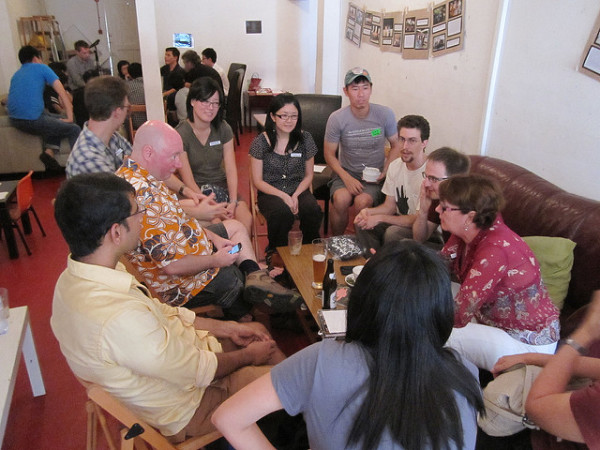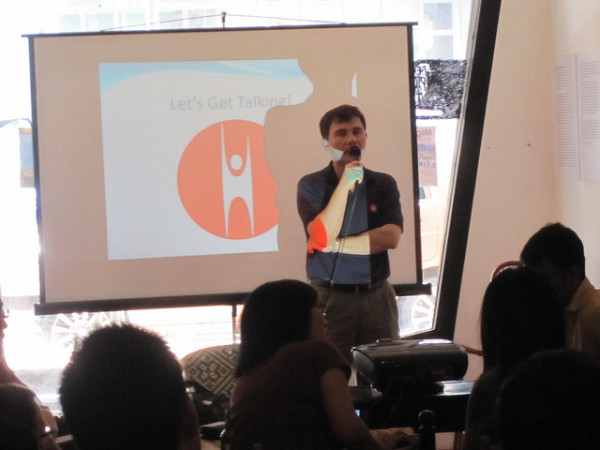Logical and rational discourse can be potentially offensive to people who believe wholeheartedly in certain traditions and paradigms even in the absence of evidence. In worst case scenarios, the offended party could possibly call for state intervention (Sedition Act and S298 etc) against humanists engaging in such discourse. To discuss this problem, we held at event titled Humanist Cafe: Sharing your worldview on Nov 24, 2012, to gather ideas on how humanists could go about sharing the rational worldview with the potentially offended.
Drawing from the varied experiences of 37 participants, we have compiled of a list of useful tips for humanists, atheists, agnostics and skeptics to follow when sharing their worldview under difficult circumstances.
 Photo: One of the discussion groups at the Humanist Cafe, held in a Duxton Hill cafe.
Photo: One of the discussion groups at the Humanist Cafe, held in a Duxton Hill cafe.
How to engage the potentially offended
Before engagement:
- Think of what you wish to achieve from the engagement.
- After that, clarify the aim of engagement.
- In general, there are three possible objectives: To maintain the relationship, to show that you are right, or to show that your opponent is wrong. Adjust your approach accordingly to achieve your aim.
During the engagement:
- First, assess what the other side believes and why they believe.
- Keep an open mind. Try to listen to and understand the opposing point of view before formulating your response.
- Stay on the same wavelength. If it is an intellectual argument, reply in an intellectual manner. If your opponent uses emotional rhetoric, then reply using emotional rhetoric as well.
- Emphasize the positive aspects of your belief rather than just attack a belief.
- If your opponent is a stranger, stay calm and be more tactful. Through questioning, try to find common ground with your opponent and avoid personal attacks.
- If your opponent is someone you are close to, such as a family member or good friend, you can challenge their beliefs on a more personal level. However, this will also depend on the degree of potential repercussions. Pushing your views too hard could lead to high social cost (loss of friends and poor family relations).
At the end of the day:
- You don’t necessarily have to convert your opponent to your point of view. What’s more important is the process of bringing well-informed views to the audience.
- Differentiate between ‘offence’ and ‘harm’. Some ideas may be offensive but they need not be self-censored if they cause no harm.
- If you are engaging close friends/family members regarding their beliefs, and you end up hurting their feelings, understand that you engaged in such discourse because you care for them. Hurting their feelings isn’t necessary a bad thing in the long run.
The Humanist Society (Singapore) wishes to thank Mr Paul Tobin (above) for volunteering as facilitator for the event, and all Cafe participants as well for contributing their valued opinions. This list is not exhaustive and can be expanded. If you have any suggestions, please contact us info@humanist.org.sg





